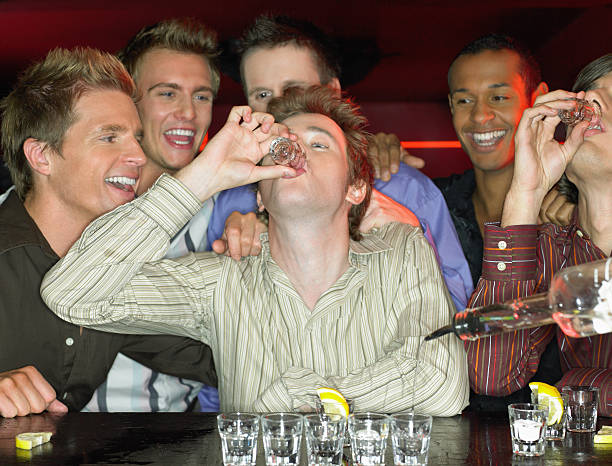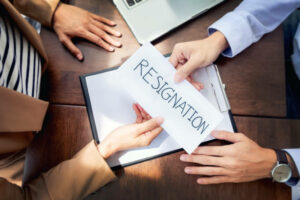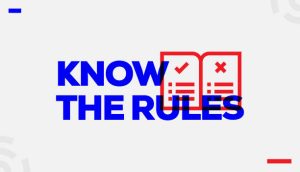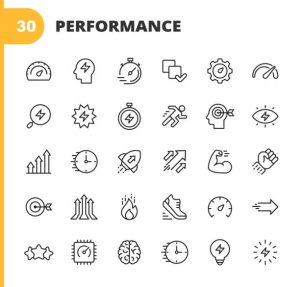
Dismissed for being drunk at work: When is it fair?
Being drunk at work might seem like a situation that would lead to a fair dismissal. However, that always isn’t the case. An employer doesn’t have the automatic right to dismiss an employee who is drunk at work. Nor if they are under the influence of drugs or have failed a drug test.
There are a number of factors that determine if an employee can be fairly dismissed for being drunk at work. In this article, we explain exactly what these factors are. And we provide examples of two cases involving unfair dismissals of employees who were drunk at work. These cases resulted in very different outcomes for each employee. And they will help you understand how the Fair Work Commission and courts make decisions concerning employees who have been dismissed for being drunk at work.
Can you be dismissed for being drunk at work? Here’s what the law says.
The Fair Work Commission states that being drunk at work is considered serious misconduct, which is generally a valid reason for summary dismissal. That is, when an employee is dismissed without notice. However, when an employee is summarily dismissed, it must be a proportionate response to their misconduct. And there must be sufficient proof that the misconduct occurred. The onus is on the employer to ensure that the summary dismissal was fair and reasonable.
If a summary dismissal for being drunk at work was a disproportionate response, or if there is insufficient proof provided by the employer, the employee can make an unfair dismissal claim with the Fair Work Commission. For more information about summary dismissals and the factors the Fair Work Commission considers when determining if they are fair, you can read our detailed article on the topic.

Other factors to consider when dismissed for being drunk at work
Of course, there are other factors that can determine if a summary dismissal for being drunk at work is fair and reasonable. For instance, if an employer has a clear zero-tolerance policy concerning alcohol or drugs. That transgressing this policy would likely mean that a summary dismissal for being drunk at work is fair. Or if an employer gives a lawful and reasonable direction to an employee not to consume alcohol, a summary dismissal would also likely be deemed fair by the Fair Work Commission.
However, if for example an employer doesn’t have an alcohol policy in place, and generally allows or encourages alcohol consumption with clients, these could be extenuating factors. An employee, as you’ll see in one of the cases we share below, could have their dismissal deemed unfair. For more information on lawful and reasonable directions given by employers, you can read our detailed article. Now, let’s look at two cases involving employees who were dismissed for being drunk at work.

Unfair dismissal case: Supervisor dismissed for drinking alcohol at work
In the recent unfair dismissal case Matthew Wyss v Omnigrip Direct Pty Ltd [2022]. A supervisor was summarily dismissed for hosting a boozy lunch with his team. While there was no evidence that he nor his team were technically drunk at work, the supervisor had disobeyed a fair and reasonable order to not drink alcohol.
The serious misconduct occurred after the Melbourne-based supervisor, Matthew Wyss, and his team had finished installing concrete islands for the City of Port Philip. Exhausted from the job, one of the team members suggested that they all go to lunch. Asking for permission to do so, Mr Wyss called Omnigrip Direct’s CEO, who said that no alcohol was to be consumed at the lunch, to ensure no one would be drunk at work. Following this directive was critical. As team members would need to drive their vehicles back to Omnigrip’s factory after the lunch.
Employee ordered a scotch and dry
In his Fair Work Commission unfair dismissal hearing, Mr Wyss said that when he arrived at the lunch venue, he passed on this direction to his team. But evidence provided by members of his team indicated that he hadn’t in fact told them not to drink alcohol. Mr Wyss told the Fair Work Commission that during the lunch, he noticed that a few members of his team consumed several alcoholic beverages. He then decided to order himself a scotch and dry. This decision, he later told the CEO, was due to a “mind lapse.”
Unfortunately for Mr Wyss, at the lunch was the CEO’s nephew, who was a part of his team. The CEO’s nephew later gave evidence that during the lunch, Mr Wyss thanked the team for their hard work, raised his drink and said: “Cheers.” Mr Wyss then nodded toward the CEO’s nephew, and said: “Don’t tell uncle Darren.”

Employee is summarily dismissed for serious misconduct
While it wasn’t proven that Mr Wyss nor his team were actually drunk at work, the supervisor was later found to have not followed the direction of Omnigrip’s CEO. At his unfair dismissal hearing, the Fair Work Commission heard that Mr Wyss was aware of the company’s zero-tolerance policy regarding alcohol consumption.
The CEO had previously had concerns that Mr Wyss had a lax attitude toward the policy, which prohibits employees from drinking during work hours unless given permission to do so. Earlier in 2022, Mr Wyss had asked the CEO why alcohol wasn’t allowed at a work event. The CEO replied that Omnigrip had a zero-tolerance policy. To this, Mr Wyss told the CEO: “That is bullshit. You say that simply because you don’t drink and you’re pushing that on others.”
When the CEO asked Mr Wyss if he and his team had been drinking at the lunch, he responded by saying: ‘This is bullshit, yes they were drinking but we had finished work and [it was] not a big deal.’ The CEO later told the Fair Work Commission that Mr Wyss spoke to him in an aggressive way and wasn’t remorseful. Following this exchange, Mr Wyss was summarily dismissed for serious misconduct. Namely, for failing to adhere with a lawful and reasonable direction. He subsequently made an unfair dismissal claim with the Fair Work Commission.
Fair Work Commission rules on the unfair dismissal case
At Mr Wyss’ unfair dismissal hearing, Fair Work Commission Deputy President Colman found that he hadn’t taken the CEO’s direction not to drink alcohol seriously. This, the Deputy President said, was a lawful and reasonable direction. It was accepted that Mr Wyss hadn’t passed on the direction to his team. Also, that Mr Wyss had told the CEO’s nephew not to tell the CEO that they had been drinking.
The Deputy President ruled that failing to comply with the CEO’s lawful and reasonable direction was on its own a valid reason to dismiss Mr Wyss for serious misconduct. But it was also found that by drinking alcohol at the work lunch, Mr Wyss and his team had transgressed Omnigrip’s drug and alcohol policy. The Deputy President found that Mr Wyss had acted in a “wilful and deliberate behaviour that was inconsistent with the continuation of his contract of employment.” He therefore dismissed Mr Wyss’ unfair dismissal claim.

Wrongful dismissal case: Insurance broker dismissed for being drunk at work wins $89K
The wrongful dismissal case Willis Australia Group Services Pty Ltd v Mitchell-Innes [2014] ended in a very different outcome to the previous case. It involved insurance broker Donald Mitchel-Innes, who was summarily dismissed for being drunk at work. Instead of making an unfair dismissal claim with the Fair Work Commission, Mr Mitchell-Innes sued his employer for wrongful dismissal.
The events leading to Mr Mitchel-Innes’ dismissal took place in October 2012. This was when he travelled to Melbourne for a training conference. The night before the conference, he and some colleagues had drinks at a pub, where he remained until early in the morning. Upon returning to his hotel, Mr Mitchel-Innes couldn’t find his room key, sat down, then fell asleep near the lifts.
Around 7am, Mr Mitchel-Innes was woken up and provided with his room key. He slept in his room until 830am, then awoke and proceeded to the conference at 9am. At the conference, some of Mr Mitchel-Innes’ colleagues noticed that he appeared drunk. They said that he smelled of alcohol, was speaking loudly and slurring his words. They also said that he was throwing candy around and making animal noises. Mr Mitchel-Innes was later summarily dismissed for being drunk at work, which amounted to serious misconduct.

District Court of NSW rules on the wrongful dismissal case
At Mr Mitchel-Innes’ wrongful dismissal hearing, the District Court of NSW was told that alcohol consumption at Willis Australia Group Services was common. There was an expectation for employees to socialise with clients and prospects over drinks. And the company regularly reimbursed alcohol expenses.
Upon Mr Mitchel-Innes joining Willis Australia in 2011, he was told by the CEO that he should follow the client’s “lead” when it came to consuming alcohol. The District Court of NSW judge accepted that the conference wasn’t a client event. However, he stated that Willis Australia’s general encouragement of alcohol consumption was a key factor to be considered.
He also noted that the company’s policies only allowed for a summary dismissal in two cases. That is, if misconduct led to reputational damage for Willis Australia or if it endangered colleagues. Since no clients witnesses Mr Mitchell-Innes’ behaviour, it was found that the company didn’t sustain any damage to its reputation.
The judge accepted that Mr Mitchell-Innes’ behaviour amounted to misconduct, but not serious misconduct. He ordered Willis Australia to pay Mr Mitchell $296,650.75 for beach of his employment contract following his dismissal. After the company appealed the decision in the Supreme Court of NSW, the damages were decreased to $89, 571.61 as they were deemed excessive.

Conclusion to: Dismissed for being drunk at work: When is it fair?
As you read in this article, there are many factors that determine if a dismissal is legally fair or not. If you’ve been dismissed for being drunk at work, or for failing a drug test, you may have recourse to challenge your dismissal through the Fair Work Commission. This is particularly the case if you feel your dismissal was disproportionate to your alleged misconduct. And if your employer generally allows for or encourages alcohol consumption while at work.
If you have been unfairly dismissed, or not given a fair go, give our friendly team at A Whole New Approach a call. You will better understand what your options are. We have helped over 16,000 Australian workers make unfair dismissal claims. So we can tell you if you have a case to be made, and how to make it a success. We are not lawyers. AWNA is the leading workplace advisors and commentators. All abandonment of employment, casual employment issues, and employee rights give us a call.
You can also benefit from our no win, no fee service and enjoy your first consultation with us for free. Call us today on 1800 333 66.
Articles similar to: Dismissed for being drunk at work: When is it fair?
Dismissal drugs alcohol in the workplace






